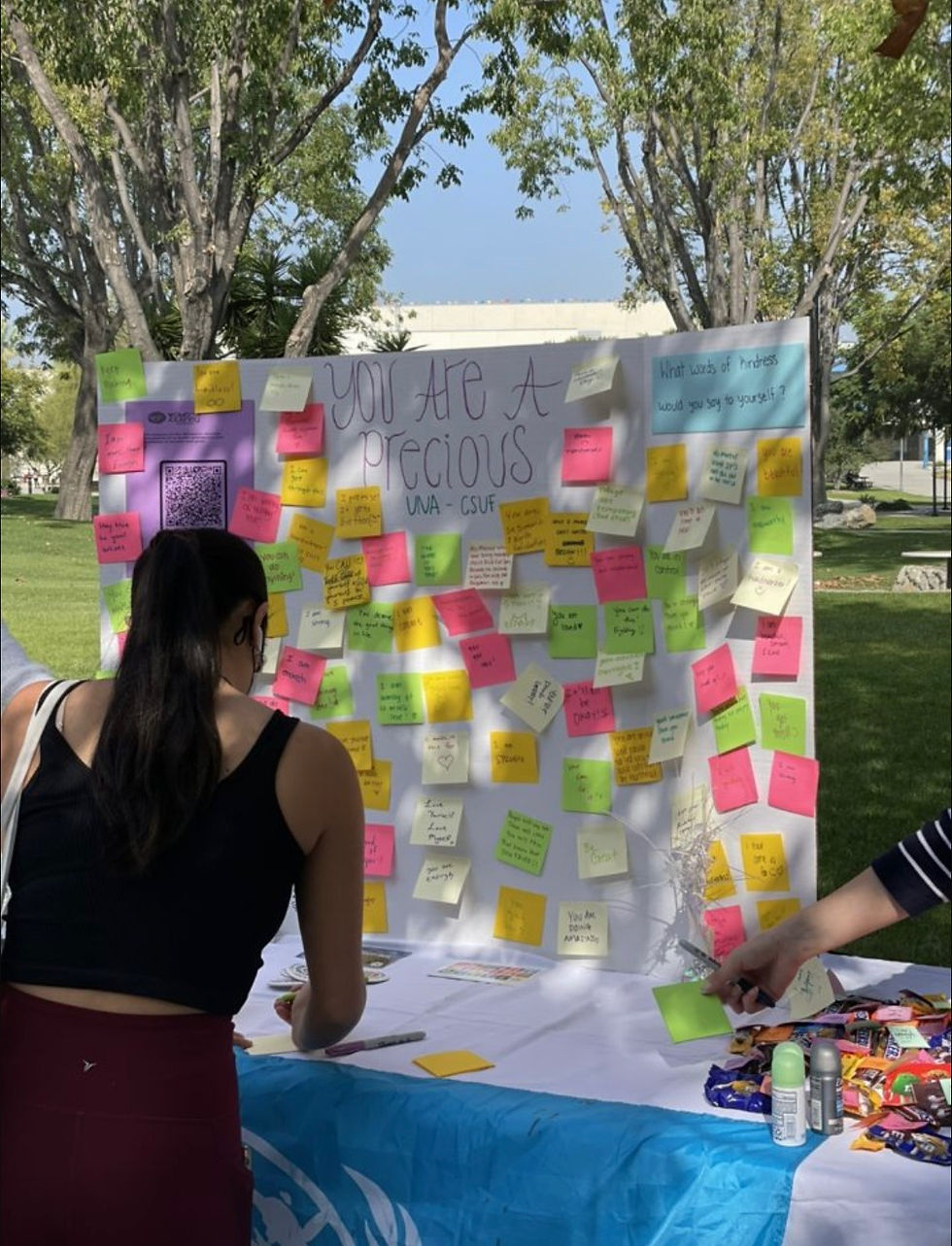UN Day tackles Food Insecurity
- UNA CSUF
- Oct 24, 2022
- 3 min read
Written by Chelsea Arangcon
This year, the theme for United Nations’ Day Oct. 24 is Nourishing Peace, which encompasses food security and peace. These two issues intersect since food insecurity can drive conflict and violence within the community.
The UN created 17 Sustainable Development Goals, which revolve around many key issues at the moment, with the second goal being Zero Hunger. Zero Hunger’s specific goals are to “end hunger, achieve food security and improved nutrition and promote sustainable agriculture,” according to the UN’s website.While the UN hoped to achieve these goals by 2030, some of these goals may need an extension.
As of right now, Zero Hunger is not on track to be completed by 2030.
Understandably so, the food and agriculture system is complex. When tackling food security, the UN not only aims to end hunger but to improve the quality of food everywhere and end malnutrition. While some people may be able to buy and eat food, it does not mean it is the healthiest option. Ending hunger also includes improving food production systems and agriculture, which is not accessible or controlled by the average citizen.
Food insecurity is not just an overseas issue, even college students are affected. According to the Second Harvest Food Bank of Orange County, 1 in 4 students in the California State University system do not know where their next meal will come from.
On a local scale, here are some ways to contribute to food security or benefit from these sources.
Composting
Food insecurity intersects with other issues such as the emission of greenhouse gasses and contribute to landfill. The State of Food Security and Nutrition in the World 2020 urged governments to reduce costs of nutritious food in food and agriculture systems and ensure healthy foods were affordable. The report called for reducing costs regarding inefficiencies and food loss and waste.
While governments control these aspects, one way to help on a smaller scale is through composting.
Composting is the process of breaking down food wastes, such as leftover fruit peels, egg shells, or any biodegradable food, into a healthy fertile soil. There are bins specifically designed for compost but on a cheaper end, you can use a regular bin or any extra container you have. The Fullerton Arboretum provides in-person workshops to educate those who would like to compost at home.
If you have access to growing your own food at home, composted soil can promote higher yields of agriculture, according to the United States Environmental Protection Agency. If you cannot grow your own food, there are locations which accept food scraps or compostable soil if you wish to compost soil in a small waste bin within your home.
ShareWaste is a company where you can give away your food scraps to a neighbor or become a “host” and accept food scraps to turn into compostable soil.
Orange Compost is another company that offers customers a compost bin for their food scraps. Your food scraps are picked up biweekly. Then, Orange Compost transforms your food scraps into composted soil, which is then delivered to local community gardens. This service, however, is a monthly subscription costing $25.
Receive Food or Donate to Local Food Banks or Pantries
Cal State Fullerton students, regardless of finance status, unit enrollment, class level, or residency, are welcome at the Associated Students’s Food Pantry. Open on Mondays to Fridays in the Titan Student Union in Room 107A, students must make an appointment for their shopping trip.
The scheduled appointment allows students to privately shop. If you would like to donate to the pantry, here is a list of acceptable items.
Around Orange County, there are other food banks to receive food or volunteer at. Some popular food banks include:
The Orange County Food Bank assists those who have applied to the CalFresh program. They also provide monthly food packers for seniors and a mobile food trolley for families with minor children in their households.
Second Harvest Food Bank of Orange County provides programs and meal plans for children, college students, working families and individuals, and seniors.
At Crescent Food Bank, they also assist individuals and families by holding an assessment session to create a specialized plan to one’s needs.
Whether you can make change on a local or grand scale, any effort is appreciated. Even educating yourself or others can bring more awareness regarding food insecurity and peace. Happy UN Day everyone!



Comments